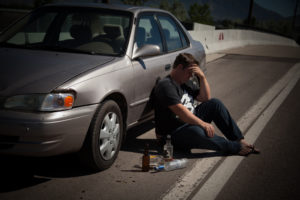California First Offense DUI
California First Offense DUI
A DUI with no priors is considered a California First Offense DUI. For a first time DUI with no priors, the law has certain specific things that must be proven, and certain punishments and requirements if the case is proven.
The punishment for first offense DUI cases:
The law has a maximum (six months in jail, an alcohol school, and fines and fees that total $5000), and a minimum (three years probation, an alcohol school, and base fines of $390). In Orange County, DUI cases are sometimes reduced to another charge, like an exhibition of speed, or speeding, a drunk in public, or a dry reckless or wet reckless, which would reduce the entire sentencing range below the minimum. For a case that has no priors, you would be looking at the minimum, not the maximum.
However, the prosecutor would add punishment if there were any of the following:
- a blood alcohol level of at or above a .16%;
- children in the car;
- an accident (with or without injury);
- an allegation that you were speeding while DUI;
- or any priors.
If there is an injury, or a death, caused as the result of driving under the influence of alcohol or drugs, or while the driver’s blood alcohol is 0.08% or more, the driver can be found guilty of a felony and could go to state prison for over a year, and possibly for up to five years, depending on whether it’s the driver’s first, second, or third offense. Even as a first-time offender, with no priors, you can face jail time for felony cases.
We can help avoid the more severe punishment for any of the above. The good news is that there is a way to avoid losing your driving privileges, and you probably will not face any jail time for a first time DUI.
DUI Probation Terms
If you are convicted for a first time DUI, with nothing on your record, you will usually be given DUI probation for three to five years. If you violate any of the terms of your DUI probation, you can face a hearing in front of a judge, where additional penalties can be applied. The standard conditions of probation include:
- You cannot drive with any measurable amount of alcohol in your system;
- You must submit to a blood or roadside breathalyzer (PAS) test upon the request of any police officer; and
- You must not violate any law (no further misdemeanors or felonies — ordinary traffic infractions don’t count).
The law involved in First DUI cases with no priors:
The law that makes driving under the influence (DUI) of alcoh , and DUI under the influence of drugs (DUID) is California Vehicle Code VC 23152, and its subsections. Those define the type of DUI as follows:
- VC 23152(a) It is unlawful for a person who is under the influence of any alcoholic beverage to drive a vehicle.
- VC 23152(b) It is unlawful for a person who has 0.08 percent or more, by weight, of alcohol in his or her blood to drive a vehicle.
- VC 23152(c) It is unlawful for a person who is addicted to drugs to drive a vehicle.
- VC 23152(e) It is unlawful for a person who is under the influence of any drug to drive a vehicle.
- VC 23152(f) It is unlawful for a person who is under the combined influence of any alcoholic beverage and drug to drive a vehicle.
What must be proven for DUI cases with no priors?
The prosecutor must prove, according to the official California jury instructions all of the following in a DUI case. Each element must be proven beyond a reasonable doubt:
1. That the defendant drove a vehicle;
AND
2. When (he or she) drove, the defendant was under the influence of an alcoholic beverage, or a drug, or under the combined influence of an alcoholic beverage and a drug.
Proving that someone was under the influence can be shown by simply being above a .08, at which level you are presumed impaired. Or, the prosecutor can show that a person is under the influence if, as a result of drinking or taking a drug, his or her mental or physical abilities are so impaired that they is no longer able to drive a vehicle with the caution of a sober person, using ordinary care, under similar circumstances.
The way that in which a person drives is not enough by itself to establish whether the person is or is not under the influence. But it, it is a factor to be considered, in light of all the surrounding circumstances, in deciding whether the person was under the influence.
What defenses are there for DUI cases with no priors?
Defenses to a case with no priors for first time offenders would include the following:
- A lack of probable cause (or no legal reason) for stopping the car;
- Failure to adhere to proper protocols for arrest, and for testing;
- Contamination issues in testing;
- A lack of proof regarding timing of intoxication;
- A lack of proof regarding who the driver was;
- A lack of proof regarding impairment, along with other defenses and issues.
What about my license?
In order to keep your license, you must win both the DMV hearing in your DUI case, and avoid a conviction in court for DUI, which can also suspend your license. A top rated DUI attorney, can help you do that.
How can an attorney help me with a DUI with no priors?
With a lack of any prior charges, you are in a unique position to present character references or other information about you, to mitigate your damage, and have the case reduced or dismissed. The prosecution fights harder with cases that have a prior DUI or a criminal history, and won’t extend consideration to dismissal or a reduction of the case. This is where the negotiation skills of a DUI expert or specialist can help you.
Contact us.
Contact us today to start on a strategy to help your first time DUI with no priors. We can help you.



